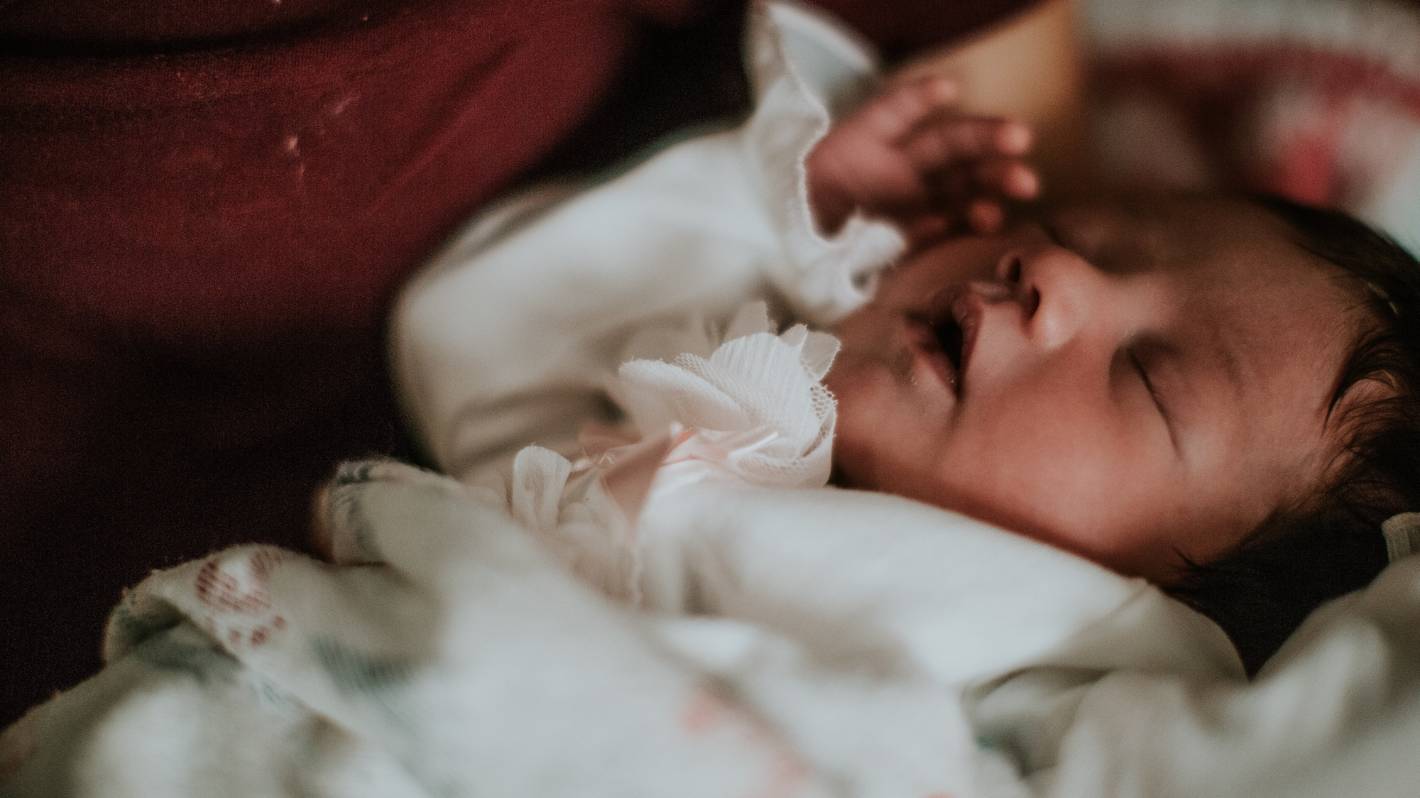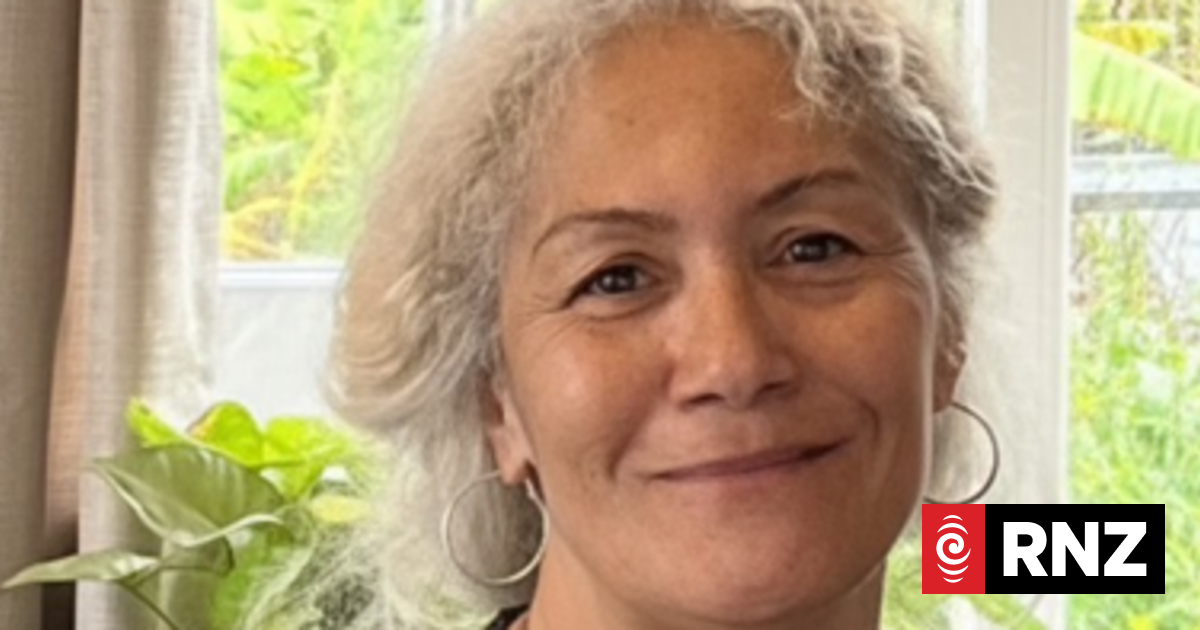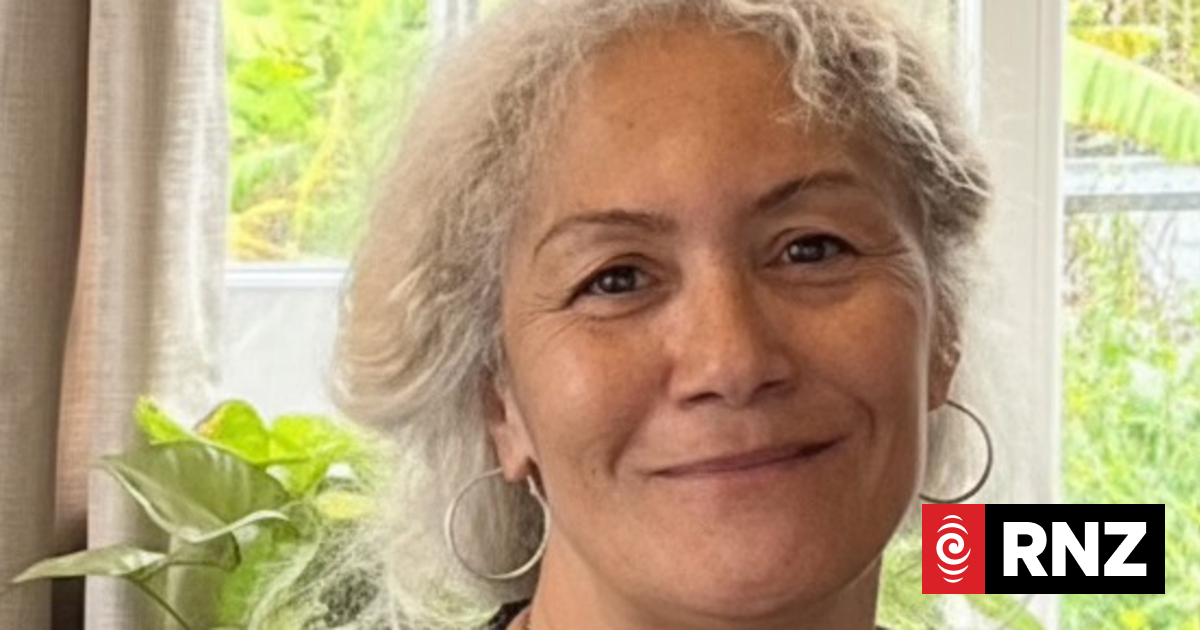SUPPLIED
Public health experts say cases of congenital syphilis have increased in recent years – a disease they say we can, and must, eliminate. They suggest repeat screening in the third trimester could help.
- More than 25 babies have been born with syphilis in the past five years, where previously cases had been rare.
- Babies can be infected with syphilis during pregnancy.
- Congential syphilis can cause babies to be born with fevers, enlarged liver or spleen and skin rashes. Further health problems can develop later.
- Syphilis can be treated during pregnancy with penicillin.
The number of babies born with congenital syphilis is rising, leading experts to call for changes to how we screen for the disease during pregnancy.
Syphilis is a sexually transmitted infection which, if untreated, can cause serious health problems. Congenital syphilis occurs when a mother passes the infection to her baby during pregnancy.
In 2021, two babies were born with congenital syphilis in Aotearoa, data shows. Last year, this jumped to eight – seven were Māori pēpē.
Experts say just one case represents a “healthcare failure”, but repeat screening for syphilis in the third trimester could help.
READ MORE:
* ‘Sharp’ increase in syphilis cases sparks call for people to test, practice safe sex
* Sexual health group wants better syphilis care in South Auckland
* Sexual health expert calls for accelerated effort to eliminate syphilis and HIV
Prior to 2017, congenital syphilis cases were rare. But in the past five years, there have been more than 25 cases.
University of Auckland paediatric infectious diseases specialist Dr Emma Best said consequences of syphilis in pregnancy include foetal death, prematurity and critically ill newborns.
Babies born with congenital syphilis can have fevers, enlarged liver or spleen and skin rashes. Even those with no initial symptoms may develop problems over years including deafness, eye disease, seizures and intellectual disability.
SUPPLIED/Stuff
University of Auckland senior lecturer Dr Emma Best said addressing poverty, structural racism, mistrust of healthcare and enabling appropriate access to free services needs to continue to be prioritised, to help mitigate the risk of congenital syphilis.
Best, alongside other experts in a briefing released by the Public Health Communication Centre, said to give effective treatment for syphilis in pregnancy, cases first need to be identified with “universal” prenatal screening.
Although syphilis screening is performed early in pregnancy, this can miss early infections, or syphilis acquired later in pregnancy, they write.
It’s estimated about one in four syphilis cases had mothers with a normal first trimester screen.
Repeat testing for syphilis can be done in the third trimester guided by a risk assessment, yet this can be “stigmatising, inequitable and may continue to miss cases”, they write.
“Repeat screening in the third trimester has the potential to detect and enable treatment of a number of these late infections, preventing devastating health outcomes,” Best said.
Pregnant people can be treated with penicillin to prevent foetal and infant disease, although newborns may also require penicillin if treatment is inadequate or comes late in pregnancy, the authors say.
In May, the entire Northern region introduced routine third trimester screening – supporting all pregnant people to be offered repeat testing for syphilis later in pregnancy as part of the effort to stem the rise in congenital cases.
Overall, syphilis case numbers are rising in New Zealand.
Between 2018-20, cases of congenital syphilis were estimated to be more than nine per 100,000 live births – rising to 14 per 100,000 in 2022, “much higher” than reported in Australia, they wrote.
1 NEWS
The findings show most of the influencers analysed, talked about stopping hormonal contraception methods.
The authors say lead maternity carers need to be aware of the Sexual Health Society recommendation to rescreen in the third trimester, and all healthcare professionals need to be alert for possible congenital syphilis cases.
Best said we’ve learnt lessons from the Covid-19 pandemic around settling up equitable and accessible public health infrastructure – something that “must continue” for other infectious diseases, such as syphilis.
“Addressing poverty, structural racism, mistrust of healthcare and enabling appropriate access to free services needs to continue to be prioritised,” she said.
The Ministry of Health and Te Whatu Ora have been contacted for comment.




